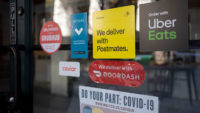According to the Department of Labor (DOL), the veteran unemployment rate as of November 2020 stood at 5.9% — a significant increase from the 2019 rate of 3.1%.
When speaking on the labor shortage with various professionals in our industry there is a common theme among hiring managers: Hiring good, honest and hard-working people is often more important than industry experience itself. High school and trade school graduates, along with current PHCP-PVF industry pros are popular pools to search when hiring, but one you may not have thought to explore is the U.S. armed forces and/or veteran population.
A recent conversation with Quawnishia Morgan, warehouse and logistics manager at ADS, Inc., military equipment supplier that provides tactical equipment, procurement, logistics, government contracts and supply chain solutions, provides some insight into the specific skillet U.S. armed forces members and veterans carry that can be of use in supply chain logistics roles.
“Members of the U.S. Armed Forces have the innate ability to think outside the box and search for external solutions to existing logistical challenges,” Morgan says. “Sometimes the critical status of the mission may force them to seek solutions that may create a pain point elsewhere. For example, if an aircraft cannot fly due to a missing part, and that part is on backorder for two months, they may source this item by cannibalizing another aircraft that has a working part. This method eventually creates twice the work, but the desired aircraft can now fly on its mission.”
With the supply chain disruption we are facing today, it’s important to have quick-thinkers, problem solvers and go-getters on your team.
“While serving, there is not an option to not perform a specific task or to report that something cannot be done,” Morgan says. “Through process of elimination and strategy, they often land on the desired solution in order to support the mission. These are your “go-getters”, the hard chargers — the people that believe in a certain level of professionalism and importance to the job at hand.”
When it comes to what training and education is best for employing armed forces members, Morgan says it’s very much up to the individual or employer.
“The training and education needed when employing an armed forces member to a logistics role should be building upon an existing foundation of the industry as a whole,” she says. “I do not believe that a specific degree has to be obtained in order to be successful in a logistics role, and it is very much up to the individual. However, I do believe that in the logistics industry, it is often respected and appreciated by others when someone has a formal education in the logistics field to support their work history.”
Choosing to look into this pool of candidates can help secure career paths for veterans after they retire from the military, helping reduce the country’s veteran unemployment rate. Morgan notes she’s seen veterans succeed in various supply chain roles.
“I have personally seen armed force members excel in the areas of operations managers, project managers and program managers. Those roles often have set processes, much like many of the programs within the military today,” she explains. “When logistics and distributor hiring managers source talent directly from military resources, it ensures that the talent pool is built from a foundation of core values instilled from any military branch.”
If you’re interested in looking into this pool of candidates, there are a few resources to check out:





